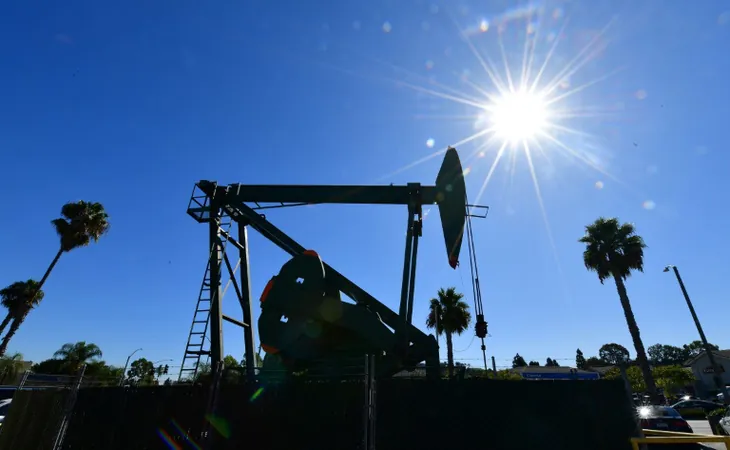
Oil Prices Surge Following Iran's Military Provocation, Hong Kong Market Rebounds
2024-10-02
In a sharp escalation of geopolitical tensions, oil prices soared by over one percent on Wednesday, building on a substantial rally from the previous day. This surge comes in the wake of Iran's missile strikes on Israel, which heightened fears of an impending conflict in the Middle East and sent shockwaves through global markets. Meanwhile, the safe-haven asset gold approached its all-time high as investors flocked to secure their wealth amid rising uncertainty.
The missile launches from Iran, reportedly a reaction to the assassination of Iranian-aligned militant leaders, triggered significant volatility in trading. Although many missiles were intercepted before reaching their targets, the incident ignited a fierce response from both Tel Aviv and Washington. The U.S. has indicated that it is contemplating a coordinated response, warning Iran of "severe consequences." Israel has similarly vowed to retaliate against Iran for the aggression.
Analyst Stephen Innes speculated on the potential ramifications of this military action, questioning whether it signifies a one-time spike in hostilities or the start of a protracted conflict. He warned that targeting Iran's oil infrastructure could lead to catastrophic economic repercussions and could escalate tensions far beyond the immediate region.
As the price of oil surged—West Texas Intermediate climbed to $70.98 per barrel, while Brent North Sea crude reached $74.63—demand for gold also spiked, inching closer to its $2,685 record high. This reflects investors' increasing anxiety about the stability of global markets in light of geopolitical unrest.
While U.S. and European markets faced declines, with the Nasdaq dropping over one percent, Asian markets displayed resilience. Hong Kong's Hang Seng Index saw a spectacular rise, gaining over four percent as it crossed the 22,000 points mark for the first time since February 2022. This rally was bolstered by the recent announcement of extensive economic stimulus measures by China, aimed at lifting its economy from a prolonged downturn.
Other major Asian markets also enjoyed a mix of performance. Sydney, Singapore, and Wellington posted gains, although Seoul, Wellington, and Jakarta saw minor slips. Both Shanghai and Shenzhen were closed for a holiday.
In Japan, however, the market faced downward pressure as the Nikkei 225 fell more than one percent amidst concerns over policy changes from newly elected Prime Minister Shigeru Ishiba, who supports higher interest rates and potential corporate tax hikes.
Investors are now keenly awaiting key U.S. job data to better gauge the economy's health and the Federal Reserve’s plans for interest rates following last month's significant cuts.
Key Financial Figures:
- West Texas Intermediate: Up 1.7% at $70.98 per barrel.
- Brent North Sea Crude: Up 1.5% at $74.63 per barrel.
- Hong Kong - Hang Seng Index: Up 4.7% at 22,124.71.
- Tokyo - Nikkei 225: Down 1.7% at 38,013.76.
- New York - Dow: Down 0.4% at 42,156.97.
- London - FTSE 100: Up 0.5% at 8,276.85.
As tensions in the Middle East rise, analysts will be closely monitoring the situation, wondering just how far-reaching the consequences may be for both regional stability and global economic markets.



 Brasil (PT)
Brasil (PT)
 Canada (EN)
Canada (EN)
 Chile (ES)
Chile (ES)
 España (ES)
España (ES)
 France (FR)
France (FR)
 Hong Kong (EN)
Hong Kong (EN)
 Italia (IT)
Italia (IT)
 日本 (JA)
日本 (JA)
 Magyarország (HU)
Magyarország (HU)
 Norge (NO)
Norge (NO)
 Polska (PL)
Polska (PL)
 Schweiz (DE)
Schweiz (DE)
 Singapore (EN)
Singapore (EN)
 Sverige (SV)
Sverige (SV)
 Suomi (FI)
Suomi (FI)
 Türkiye (TR)
Türkiye (TR)